|
Peter Mansoor
Gen. Raymond E. Mason, Jr. Chair in Military History
"Colonel Peter Mansoor, Rami Jarrah and Emily Chang"
|
Mershon Memo is a weekly e-mail newsletter distributed by the Mershon Center for International Security Studies, part of the
College of Arts and Sciences at The Ohio State University.
|
|
|
Tuesday, March 6, 2018
3:30 p.m., 120 Mershon Center, 1501 Neil Ave.
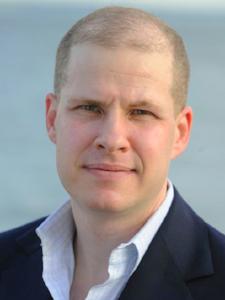 Max Boot
Max Boot is a historian, best-selling author, and foreign-policy analyst who has been called one of the "world's leading authorities on armed conflict" by the International Institute for Strategic Studies. He is the Jeane J. Kirkpatrick senior fellow in national security studies at the Council on Foreign Relations and a national-security columnist for the
Washington Post. Boot has served as an adviser to U.S. commanders in Iraq and Afghanistan. He was a senior foreign policy adviser to John McCain's presidential campaign in 2007-08, a defense policy adviser to Mitt Romney's campaign in 2011-12, and the head of the Counter-Terrorism Working Group for Marco Rubio's campaign in 2015-16. Boot will be speaking about his latest book,
The Road Not Taken: Edward Lansdale and the American Tragedy in Vietnam, published in January 2018. Read more and register at
go.osu.edu/bootm
|
Tuesday, March 20, 2018
12 p.m., 120 Mershon Center, 1501 Neil Ave.
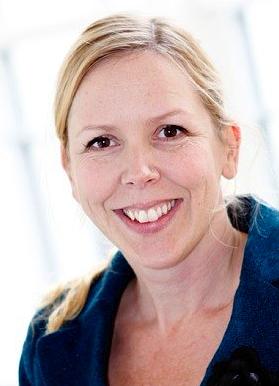 Ann Towns
Ann Towns is associate professor in political science at University of Gothenburg, Sweden. Her research deals with questions about norms, international hierarchies and resistance in international politics, generally with a focus on gender. She is currently conducting a large research project on gender norms and practices in diplomacy, an inter-state institution that has long been dominated by men but where more women have entered within the past decade. As part of this project, she will carry out field work among diplomats in Washington, D.C., during 2017-18 and in Stockholm 2018-19. Towns is the author of
Women and States: Norms and Hierarchies in International Society (Cambridge, 2010) and co-editor of
Gendering Diplomacy and International Negotiation, with Karin Aggestam (Palgrave, 2017). Read more and register at
go.osu.edu/townsa
|
Wednesday, March 21, 2018
3:30 p.m., 120 Mershon Center, 1501 Neil Ave.
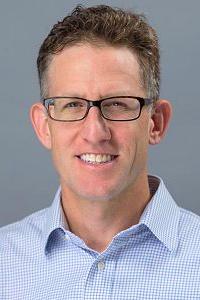 Joshua Busby
Joshua Busby is associate professor at the LBJ School of Public Affairs at University of Texas-Austin. He has published widely on transnational advocacy movements, climate change, global health, and other topics. Busby is the author of
Moral Movements and Foreign Policy (Cambridge, 2010), and
AIDS Drugs for All: Social Movements and Market Transformations, with Ethan Kapstein (Cambridge, 2013). He was a leading researcher on the Climate Change and African Political Stability (CCAPS) project, a $7.5 million grant from the Department of Defense under its Minerva Initiative. He is the principal investigator under the Complex Emergencies and Political Stability in Asia (CEPSA) project, a $2 million project also funded by the Minerva Initiative. At this event, Busby will discuss the field of environmental security and what might be done to address the real security consequences associated with climate change. Read more and register at
go.osu.edu/busbyj
|
 |
 |
|
The Psychological Effect of Motion on Conflict Resolution
|
|
Principal Investigators: Lisa Libby and Micah Goldfarb, Psychology
More than 28,000 people per day are forced to flee their homes because of conflict and persecution, with over 65 million forcibly displaced worldwide, according to the U.N. High Commissioner on Refugees. Disrupting the cycle of violence and promoting conflict resolution is a critical goal.
In this project, associate professor Lisa Libby and graduate student Micah Goldfarb researched the effects of physical motion on perceptions of ingroup responsibility for intergroup conflict. Through this intervention, they hope to break the cycle of victimization by subtly increasing individuals' feelings of collective responsibility for harms committed by their group, thus providing a nudge to be more open to compromise.
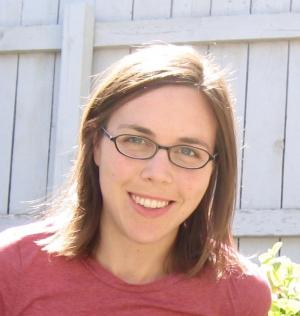 Previous research by Libby and Goldfarb on perceptions of individual responsibility found that experiencing physical motion of the self through the environment (e.g., walking through an airport terminal), as opposed to experiencing motion of objects in the environment while the self remains stationary (e.g., waiting for luggage at a baggage carousel), has psychological consequences for how responsible people perceive themselves to be for interpersonal outcomes. People who experience self-motion vs. environment-motion judge themselves as more responsible.
Libby and Goldfarb then conducted experiments to see whether the effects of physical motion on interpersonal judgments extend to intergroup judgments.
In the first experiment, American undergraduates were randomly assigned to experience either self-motion or environment-motion. Then, they read a passage describing the United States' dropping of the atomic bomb on Hiroshima during World War II and completed measures of collective guilt for this action, defensiveness, and support for apology and reparations.
Self-motion (vs. environment-motion) led to greater collective guilt and, by extension, led to both a decrease in defensive justifications and an increase in support for apology and reparations.
A follow-up experiment explored the role that self-categorization as a group member plays in allowing individual experiences of motion to color perceptions of collective responsibility. Participants were randomly assigned to adopt a collective versus individualistic mindset before experiencing the motion manipulation (self- vs. environment-motion) from the previous experiment and making judgments of collective guilt, defensiveness, and interest in apology and reparations for a transgression committed by their group.
As expected, self-motion vs. environment-motion caused participants to report greater collective guilt and reparative intentions only when induced to take a collectivist mindset and therefore self-categorize as a member of the group that committed the harm. These findings suggest that the ubiquitous, yet oft overlooked, experience of physical motion could be a tool for helping to diffuse intergroup conflict and to disrupt the retaliatory cycle of violence.
|
 |
 |
Thursday, March 29, 2018
"The U.S. and China: Prospects for Trade and Security Relations"
11:30 a.m., The Boat House, 679 W. Spring St.
Sponsored by Columbus Council on World Affairs
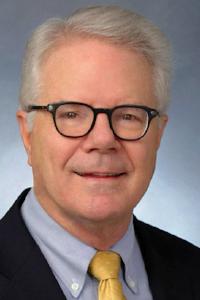 David M. Lampton is Hyman Professor and director of China Studies at the Johns Hopkins School of Advanced International Studies. Having started his academic career at The Ohio State University Lampton is chairman of the The Asia Foundation, former president of the National Committee on United States-China Relations, and former dean of faculty at SAIS. He is the author of
Same Bed, Different Dreams: Managing U.S.-China Relations, 1989-2000 (2001);
The Three Faces of Chinese Power: Might, Money, and Minds (2008); and
The Making of Chinese Foreign and Security Policy (editor, 2001). Hampton will discuss
what lies ahead in the U.S.-China relationship a
gainst a backdrop that includes nuclear threats between North Korea and the United States, an uncertain future in multilateral trade agreements around the globe, and critical midterm elections in the United States.
Read more and register
|
 |
'Origins' examines history of water fluoridation
Early in the 20th century, dentists discovered that fluoride reduced the number of cavities in their patients' teeth. Soon, amidst much debate and rancor, fluoride was regularly added to American public drinking water supplies. Fluoridation has been hailed by some as a triumph of public health but it was also, as historian Frank Zelko points out this month, a profitable way to put to use a waste byproduct from the production of fertilizer.
About Origins:
Origins: Current Events in Historical Perspective is a monthly ad-free magazine that features top scholars on today's most pressing topics. Published by The Ohio State History Department, its authors include National Book Award winners and world-renowned scholars. You can also explore
reviews of popular history books on the
Origins website as well as the new monthly feature
Milestones.
|
Deadline for International Engagement Awards extended
Ohio State faculty, staff and students are encouraged to apply for the International Engagement Awards. The Office of International Affairs is offering the Distinguished International Engagement Award ($3,000) and the Emerging International Engagement Award ($1,000). Applications are now due
Wednesday, March 7.
Read more and apply
|
Glenn College and WOSU Public Media launch Dialogue
John Glenn College of Public Affairs and WOSU Public Media are proud to present Dialogue: A New Kind of Conversation Tuesday (3/6) at 6 p.m. at the Fawcett Center. The launch of this new series will feature NPR's Sam Sanders discussing "The New Age of Entrepreneurship" with Tanisha Robinson, CEO of BrewDog USA, and Merry Korn, president/CEO of Pearl Interactive Network. Seating is limited.
Read more and register
|
|
|